“From the American People” is nowadays probably one of the most recognized slogans in international development. Behind the slogan, thousands of aid workers and professionals work within the organization that leads the U.S. aid missions – the United States Agency for International Development. For decades, a career with USAID was a major milestone for generations of aid workers, and it still is. Why? What are the characteristics needed to become a part of the team? What are the mistakes that can be made when applying for a USAID job? At DevelopmentAid, we decided to ask the best resource we have available – our members, experts in the aid sector, with years of experience at USAID. We are sure their insights will be of great help to both junior and experienced aid workers seeking to become part of the USAID team.
See also: A brief history of USAID
Key Takeaways:
- USAID has missions in more than 80 countries and runs programs in over 100 states, working in a variety of technical areas: agriculture, economic growth, environment, education, democracy, human rights, and governance, women’s empowerment, water and sanitation, and global health.
- According to experts, among the most important skills and requirements for an USAID career are a depth of background experience, excellent time management, the ability to work under pressure, productivity, and good language knowledge.
- One of the biggest mistakes made when applying for an USAID position is not paying enough attention to the job requirements.
- Among the main benefits of working with the USAID, multicultural experience, and the satisfaction of helping vulnerable people, are most appreciated.
DevelopmentAid: What major skills and requirements are necessary to start a USAID career?
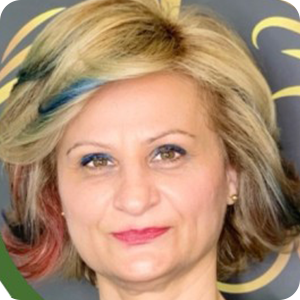
“To work for USAID, it is crucial to have a strong desire to assist individuals and communities in need of support to reach their developmental targets. This involves applying successful practices from other countries and sharing personal knowledge and experience with others. Project management abilities are also highly valued as many employees are tasked with managing various aspects of projects, including technical, financial, and administrative aspects. Additional essential skills include task prioritization, effective time management, teamwork, and the ability to work in a diverse, multi-cultural environment.”

“That clearly depends on what area someone wants to work in. Like any organization, USAID has a wealth of support positions to fill, from contracting to finance to Human Resources, etc. There are also a number of ways into USAID besides becoming a foreign service officer. More information is on the USAID.gov website under “Work With USAID.” Much of the work I’ve witnessed in my jobs with USAID has focused on economic growth, democracy and rule of law, and health. Interest, education and experience in those areas clearly would be beneficial to a career with USAID.”
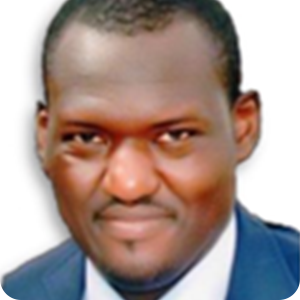
“I am not an HR specialist but from my experience, USAID’s projects are open to all kinds of skills. A candidate must be sure to match with the search profile and for me, the main requirement is experience in the domain where one is applying. Projects are time-limited, and donors will be waiting for results so, when projects recruit, they want someone who can start being productive immediately. There is no time to train, you must give what you know.”
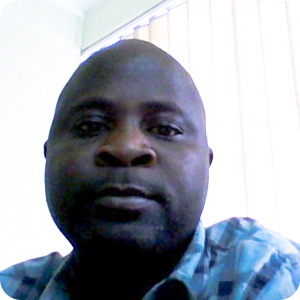
“You need to have extensive knowledge, relevant education background, be abreast of developments and policies in the respective disciplines. You need to have hands-on knowledge of the job and be able to demonstrate awareness of the efforts that are needed to make the desired changes. Generally, whatever small contribution in the area of your field needs to be amplified in terms of the impact it makes to the intervention program and larger community one aims at. If you have less experience, it is paramount to show you understand the emerging issues, have practical solutions, and show you have volunteered or provided other types of support.”
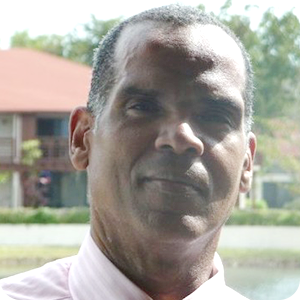
“USAID is a big US government department that manages the International Assistance budget through a main office in Washington DC and USAID missions around the world. Consequently, there are numerous different career paths with various requirements: Direct hire employees of USAID must be US citizens and meet health, background and security clearance requirements. There are many different career paths from administration to program management and technical areas such as global health, agriculture, monitoring and evaluation along with accounting and financial management. In general, a Master’s degree or higher is required in a technical specialty area along with some international experience. Very often, young American college graduates gain their international experience by volunteering with the Peace Corps where they work directly in communities around the world. International volunteering in order to gain some international exposure is a great way to get some initial experience.”
DevelopmentAid: What challenges have to be faced when applying for a USAID position?

“The process of applying for a USAID job is not significantly different from any other job application. The two essential documents a candidate should provide are a clear and detailed resume and a brief cover letter highlighting how their expertise and experience can be utilized to achieve the objectives of the position. During the interview, the candidate should be ready to discuss instances from their prior work that demonstrate their qualifications for the new job, particularly in regards to collaborative projects and working in a cross-cultural environment.”

“Speaking for myself, positions are competitive. Your experience and education count. Your interpersonal skills are important, especially for interviews. You need to apply critical thinking skills. In my case, I’ve been presented with scenarios to solve and limited time to solve them, so analysis skills also are important.”

“Make sure you understand the Statement of Work (SOW) and that you can manage your duties without too much assistance. Be sure you have adapted your resume to the context of the SOW. We apply through web platforms or by sending documents to email addresses. You must be sure you are comfortable using computers and that you follow all the instructions.”

“If shortlisted, just be sure you possess the right qualifications for the job and for what will be required. With USAID, one has to be prepared with a lot of requirements – from knowledge of specific thematic areas, intense interviews, introduction interviews, online/face-to-face interviews, comprehensive background checks, vetting of your qualifications, organizations that you have worked with. Sometimes, and most times, they will interview someone you have not proposed as a referee and ask about your character, conflict management, personal financial management.”

“The biggest challenge is the competition because so many people want to work in the field of international development. Only the most qualified with the best education and experience are usually hired.”
DevelopmentAid: How do you prepare for a USAID interview?

“To prepare for a job interview with USAID, the candidate should first carefully read the job requirements to understand the role’s responsibilities and required qualifications. They should then match their own skills and experience with the job requirements and review USAID’s website for information on ongoing projects. This research can provide a sense of USAID’s development objectives and focus and offer ideas on how the candidate can contribute to achieving these goals in the new role. During the interview, the candidate should be prepared to discuss their work style, including how they work individually and as part of a team. They should also be ready to address how they handle cultural and ethnic differences, manage their time effectively, and handle multiple tasks simultaneously. Additionally, the candidate should consider how they can apply their previous experience and knowledge to meet the job requirements and contribute to achieving the position’s objectives.”

“First, one should know a lot everything about the agency. Know about the position you are aiming for and what’s expected of you. USAID job descriptions are fairly detailed and you should be prepared to address the specifics of the job in your answers. Third, if it’s a foreign assignment, know something about the country and the mission you’ll work for. Each mission has a website available on USAID.gov and those sites have a wealth of information about what that mission’s goals and accomplishments are.”

“If you received a call for an interview that means you are more than half way. It means that technically you correspond to the description and that your experience has gained attention. So, you should not fear or panic during the interview, it is likely they are giving you a chance to confirm all that you have put in your CV. So, be confident, determined to get the job and convince the panel that you are the candidate they want.”

“Basically, USAID runs its financial calendar on an annual basis from September to October. For PEPFAR programs and other programs, they develop annual plans that are contained in the Country Operation Plan for region and specific countries (known as COP). In the COP for the specific country, they outline the country context in terms of the country policies, how they align with economic-social aspects, the challenges, and the proposed solutions. USAID best practices are shared, the workable evidence-based practices and approaches are proposed. You need to read the COP document, the USAID strategy in your respective discipline, understand the local context, how they are tailored to national policies and how USAID intends to support the government’s efforts. Understand the emerging issues in your field and proposed strategies is crucial and it is also very important to identify a mentor for coaching for a USAID career journey.”

“General interview preparation advice is always useful such as researching the organization, mastering your technical specialty and being prepared with strong answers to common interview questions and having good relevant questions to ask at the end of the interview.”
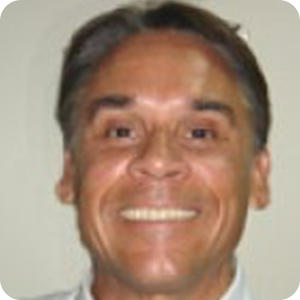
“Preparing for an interview is not especially hard, as long as one has an understanding of’ behavioral based interviewing techniques through which the answers to the questions are designed to reveal how well you can work with others, problem-solve, look for additional guidance, and the like. I don’t know what the common mistakes might be when applying for such jobs but I imagine a primary problem is USAID’s overselling of the type of glorious career path one can easily have. Having, or at least developing, tangible ‘diplomatic acumen’ to negotiate with so many intra and inter-agency colleagues, grantees and contractors, as well as host country stakeholders is a very necessary aptitude.”
DevelopmentAid: What are some mistakes that young professionals make when applying for a USAID position?

“When applying for a position at USAID, many applicants fail to carefully review the job requirements, and as a result, they may not prepare adequately for the interview. However, by taking the time to thoroughly read and understand the job requirements, applicants can better prepare for the interview and increase their chances of success.”

“I do not recommend these attitudes while applying to a position: hesitation, too much shyness or not being persuasive. Also, some candidates put too many things in their CV to impress recruiters, you must know that recruiters also evaluate your capacity of contracting, saying much in only a few words.”

“Some of the challenges to resolve are to have a CV that does not show achievements, the number of people the project previously/presently served, the key impacts of their project or not using key language terminologies in their areas when crafting the CV. USAID has its own standards on ethics so a lack of knowledge of this would be a mistake. Some applicants have been disqualified for using organizational laptops. You need someone who is working or has worked with USAID to provide mentorship on personal conduct during interviews.”
DevelopmentAid: What are the main challenges and benefits of working for USAID?

“The benefits of working for USAID are numerous. Employees have the opportunity to become experts in their field and implement modern practices to help their own countries and fellow citizens. They learn from experienced colleagues from their own country, United States and other countries, who possess world-class knowledge and expertise. The U.S. Foreign Officers also have the opportunity to work in many developing countries and share their knowledge and experience. The employees can also establish enduring friendships while familiarizing themselves with diverse cultures. As they advance in their careers, they can mentor their junior colleagues and impart their expertise to them. While challenges are an inevitable part of working at USAID, employees are encouraged to view them positively. When faced with cultural differences, employees are encouraged to learn more about their colleagues and try to understand their perspectives. When encountering challenges at work, employees should ask questions, seek guidance from more experienced colleagues, and be bold in their decision-making within their area of expertise.”

“I cannot write about domestic service. All of my work has been overseas. The great benefit to me is living with and learning about different people and cultures. In addition, working overseas affords you an opportunity to travel to neighboring countries and experience their cultures. If you believe in the benefit of foreign assistance, the work itself is rewarding in that you know you are helping people to achieve their goals for a better life. Among the challenges are being far from family and friends. You also have to adapt to living in different cultures and must understand that your American sensibilities do not always play well or serve you well in a foreign setting. You have to be open. Some people get frustrated that they cannot find the same kinds of products and services they’d easily get in the States but I’ve always found you can learn to get what you need if you accept it can be very different from what you might find back home. Generally, the benefits far outweigh any challenges, at least for me.”

“Working with projects is somehow stressful because you might be the only person in your domain working on that position in the project. You must always be ready to give opinions, write notes and projections. Project work is like a solid chain, the weakness of an element may break down the dynamism of the team. On the other hand, it is a family you meet. You will come across people from different social and cultural backgrounds, from various places. You will be in a dynamic team with everyday challenges to face, there is no time to be bored working with projects. Salaries and medical insurance are very attractive, giving you and your family many possibilities.”

“A high demand of workload should be expected, high personal and work ethics and policies are part of USAID work including safeguarding standards. USAID provides a conducive environment to work, excellent remuneration, up-to-date training including the privilege to the latest research and information and also add the chance to work with cross-cutting partners to widen professional knowledge and skills.”

“Working for USAID is very challenging because the work is very fast-paced and tasks often have to be completed within tight deadlines. Given the fast pace of the work, it can be very stressful working with USAID. The benefits are participating in improving the lives of the poor around the world and having a rewarding and challenging career along with a good salary and benefits.”
See also: Experts’ tips for starting a career at the United Nations | Experts’ Opinions
Check out the available positions within the USAID here.

